On Tuesday, Oct. 8, the Knox College Sustainability Office led a waste audit. Waste was collected, weighed, and sorted from bins around campus to determine if the proper items were in each bin.
“The purpose of a waste audit is basically to identify areas that need improvement in our waste management and with that, to reduce the amount of waste we are sending to the landfill,” Director of Sustainability Tina Hope said.
The waste audit also helped to measure the effectiveness of the new three-way bins on campus. These bins include a section each for Landfill, Recyclables, and Compost. They can be seen outside the Sustainability Office, Post Hall, and on the northern side of Seymour.
Their color-coded sections are meant to help students remember which items go in each bin. Part of the purpose of these bins is to expand composting, which has occurred for several years through the Hard Knox Cafe, to the rest of campus.
The results of the waste audit showed improvement between this term and last fall term. There was less contamination between bins, meaning that waste is being sorted properly and that the three-way bin system is successful.
The Sustainability Office, along with Students for Sustainability, works with unconventional recycling too. They collaborate with IT, custodial staff, and facilities workers to collect e-waste such as printers, computers, and other electronics. They also collaborate with student workspaces around campus, like the Ford Center for Fine Arts Scene Shop and Umbeck Science-Mathematics Center MakerSpace.
During last winter’s theater production Clyde’s, Students for Sustainability worked with students on the show’s production team to compost food scraps from each show and rehearsal. Students for Sustainability also work to sort through items donated to the share shop, the free second-hand store located in the basement of Conger Neal.
“We are treating waste as a resource, and really working with waste because we are producing so much of it, we have to start shifting the way we think about waste,” Hope said.
Future goals for sustainability on campus include increasing the amount of three-way bins available. Hope also expressed interest in finding a local place to bring compost. While some of the compost goes to the Knox Farm, most of it is driven to a composting facility in Peoria.
“All the better would be that all of the organic material, compostables included, could be composted somewhere more localized. That would reduce all the externalities of fossil fuel usage back and forth, and trucks, and service to move all this material,” Hope said. “And then all of that material becomes a resource for our community.”
Students for Sustainability has numerous volunteers who help with composting, sorting through donated items, collecting other materials such as batteries or e-waste to be properly disposed of, and educating peers about how to participate in these sustainable practices.
“I’m really inspired by the idea of becoming more resilient and moving beyond just sustainability and towards resilience, that’s really a discourse that we’re embracing. And students are all for it. We’re ready, we’re there, and we can do it even more,” Hope said.

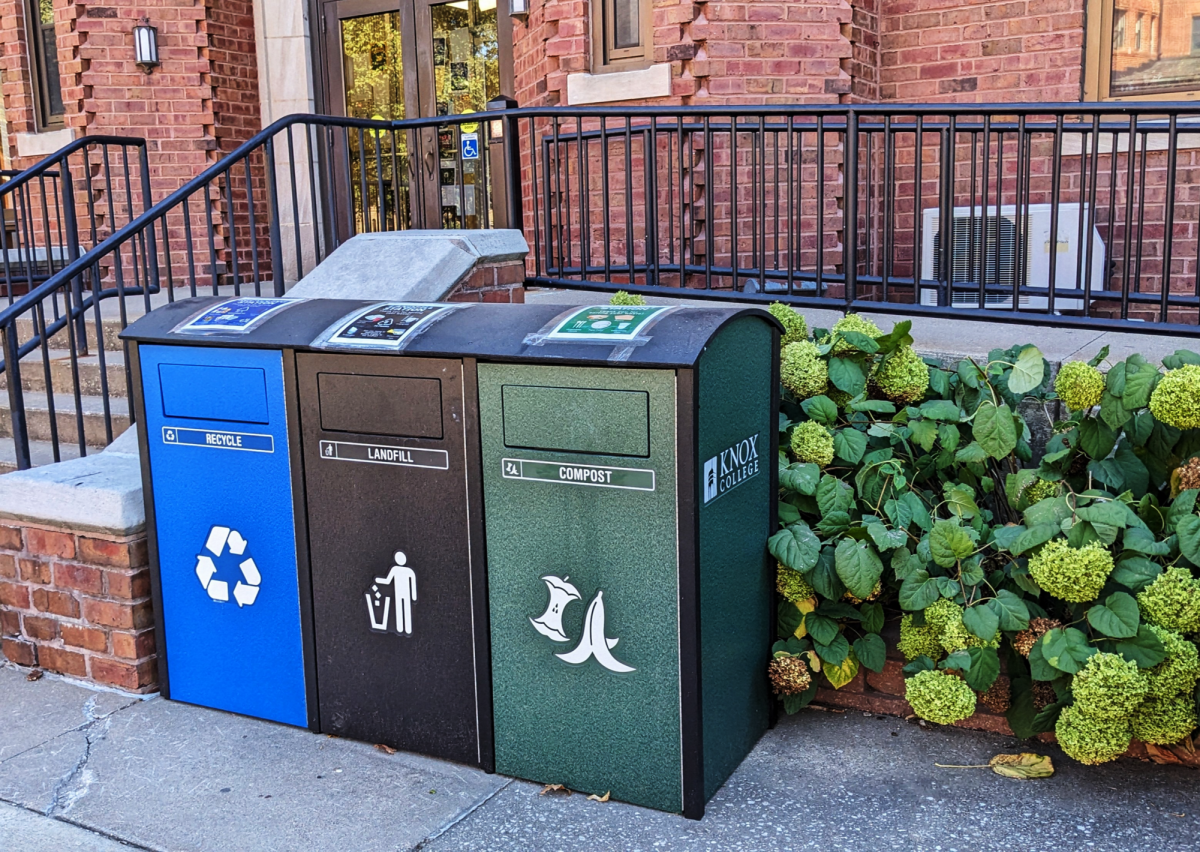
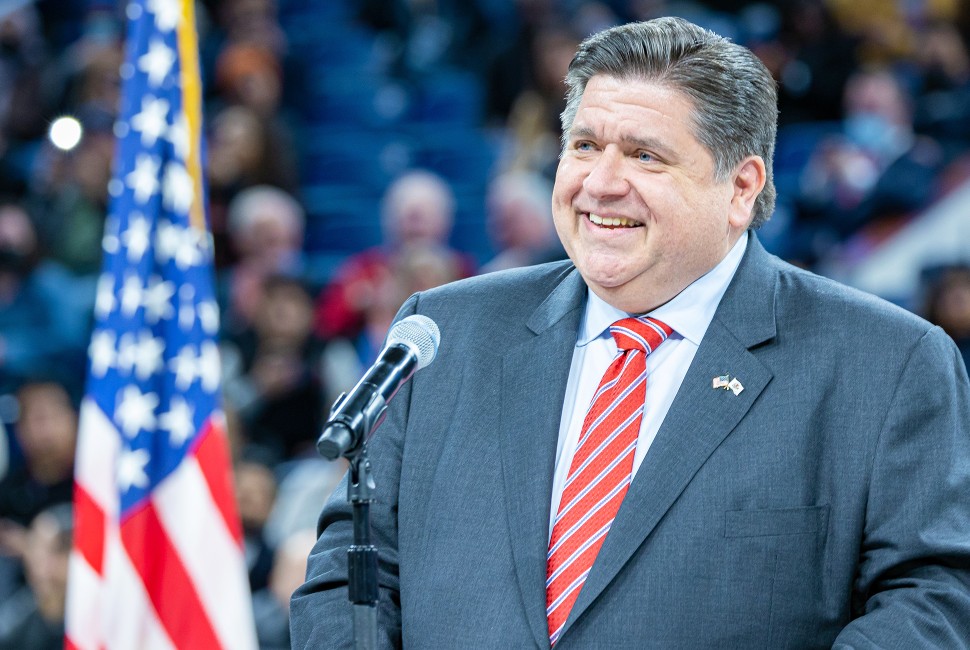
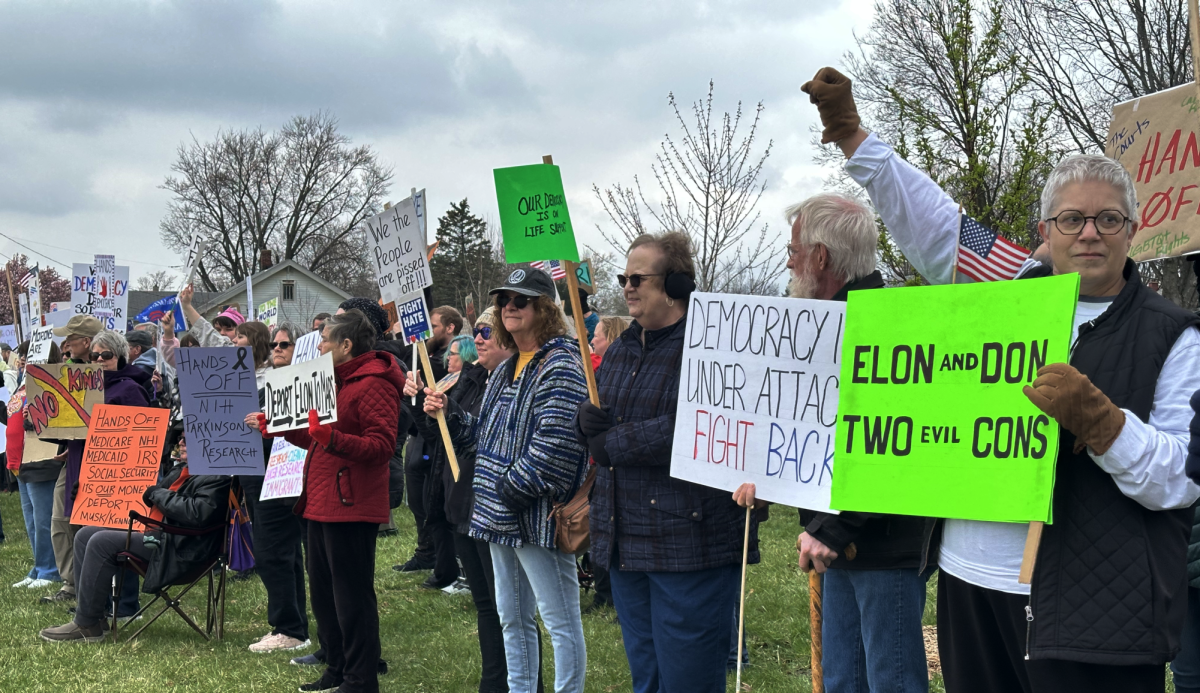
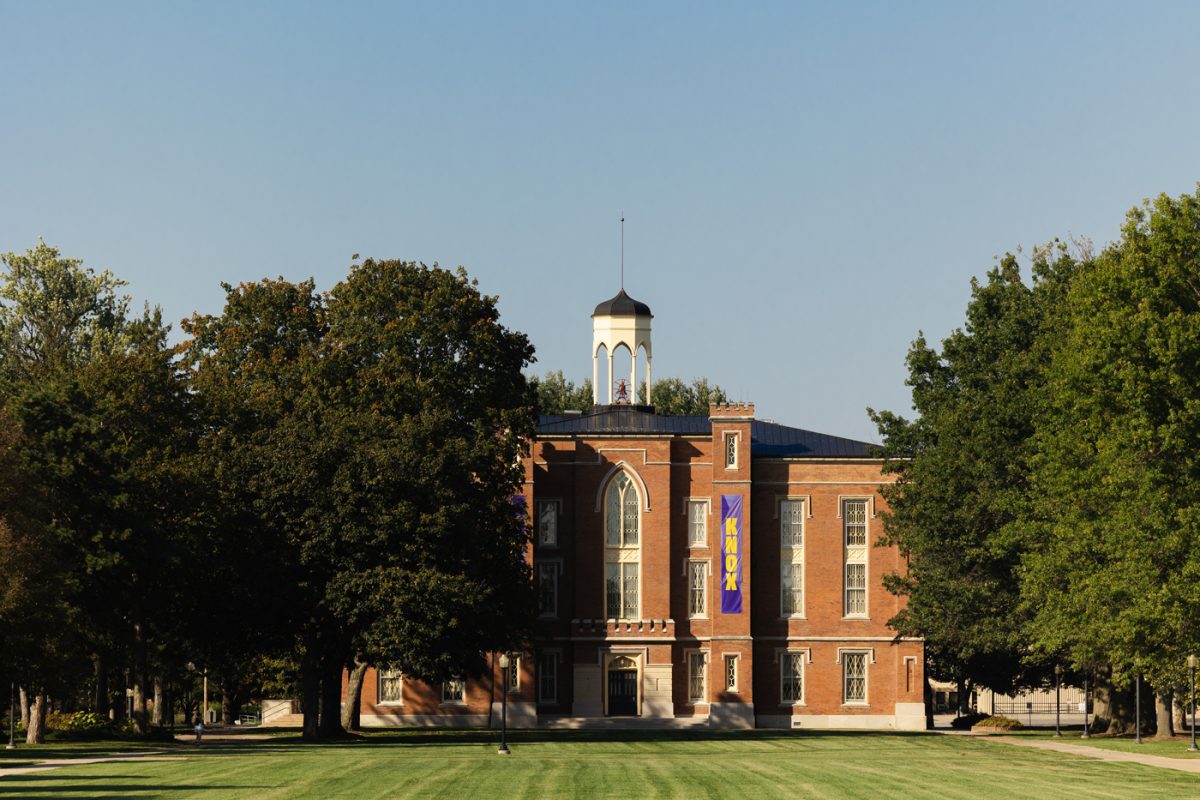
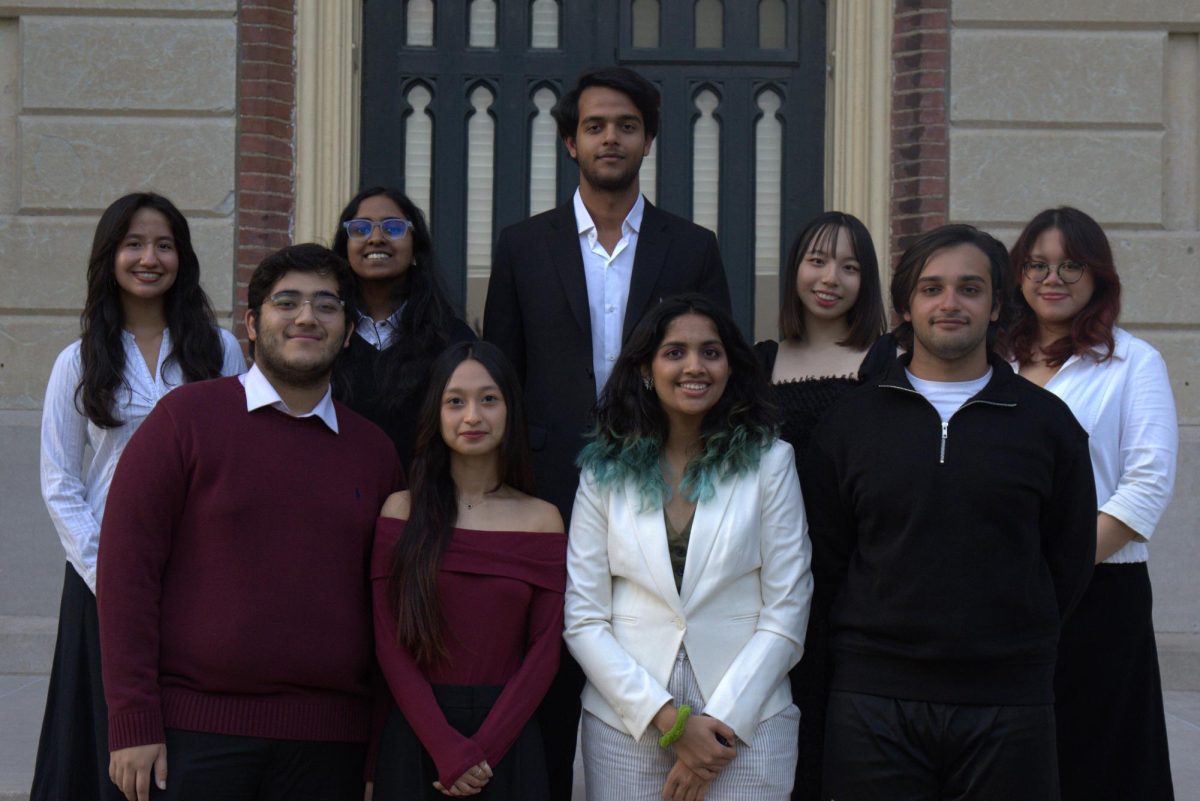
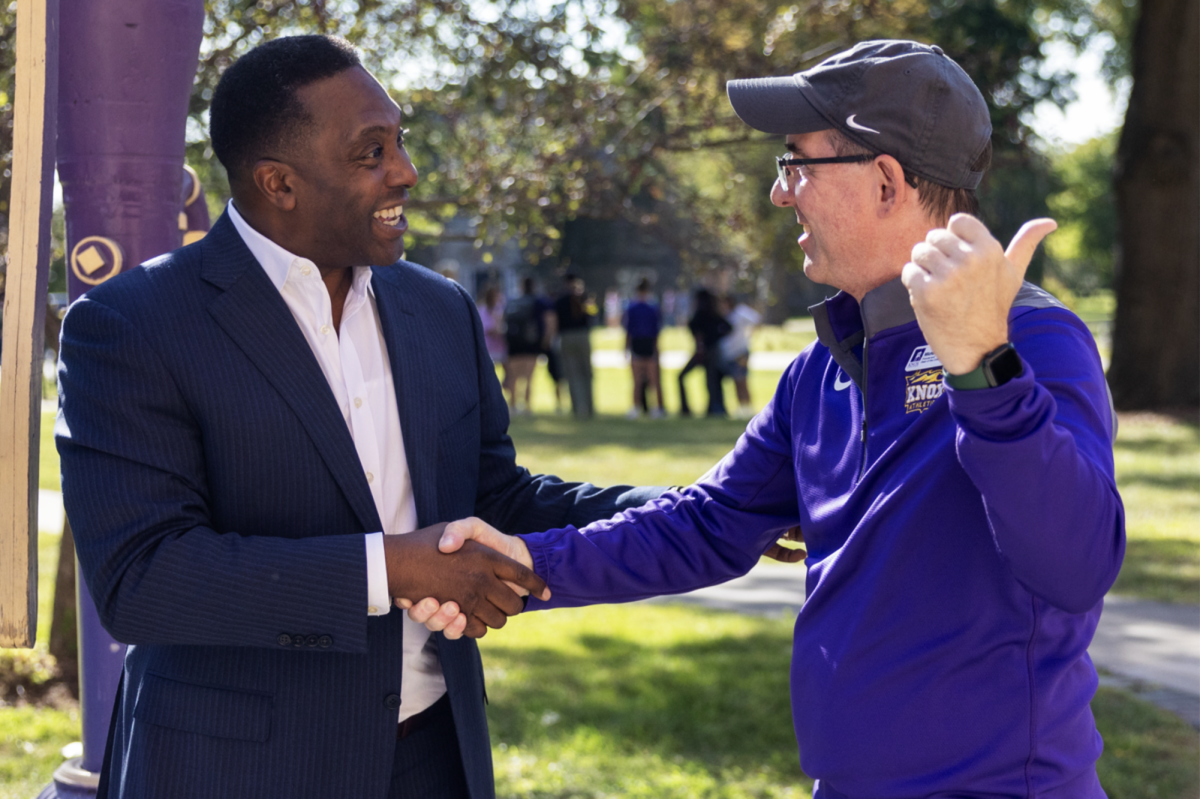
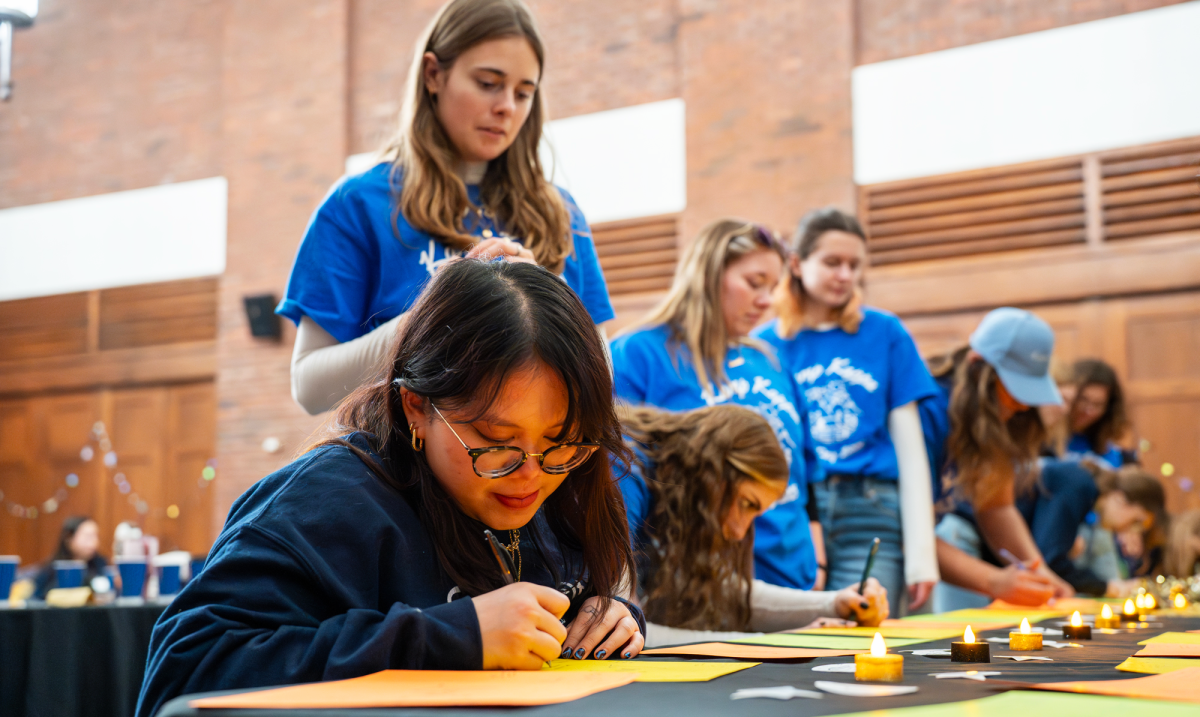
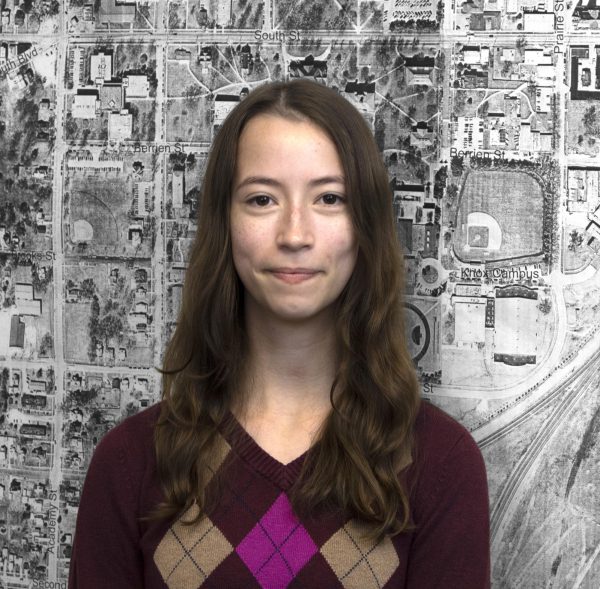
Eleanor Lindenmayer • Nov 3, 2024 at 7:35 am
I like how you take a recent event – the new bins – and use it to talk about all of sustainability on campus.